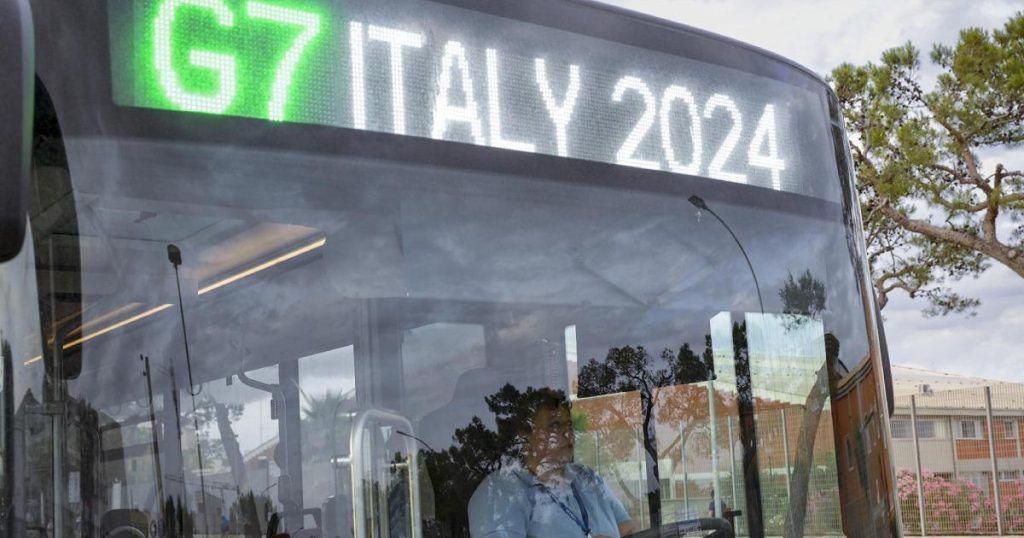The G7 summit, organized by the Italian presidency, kicked off today and will conclude on Saturday, June 15th at Borgo Egnazia in Puglia. The summit will host leaders from the seven member states (Canada, France, Germany, Japan, Italy, United Kingdom, United States) along with representatives from the European Union. Additionally, leaders from other countries and international organizations have been invited, including notable figures such as Pope Francis, President of Kenya, and President of the African Union. The summit will address key international issues over the course of three days.
The composition of the G7 and the upcoming discussions have already caused disruptions within diplomatic circles. While consensus on major issues such as the wars in Ukraine and Gaza seems unanimous, the topic of abortion has caused controversy. The latest draft of the summit’s final declaration appears to have removed language emphasizing the importance of ensuring “effective and safe access to abortion.” This has led to debates among the member countries, with sources from the Italian presidency stating that the final document will be a result of negotiations. The issue of abortion remains a point of contention among the G7 members.
As the summit approaches, there is a strong determination among the G7 leaders to reiterate their political and military support for Ukrainian President Volodymyr Zelensky. The final draft reportedly includes commitments to increase arms production and delivery to Ukraine, as well as calls for China to cease supporting Russia’s war efforts. The leaders will also address Russia’s nuclear threats against the West, particularly as Moscow’s ships approach Cuba. It is expected that alliances against Putin will be reinforced at the summit, with the signing of a security agreement between Ukraine and the US.
The G7 is expected to express support for Joe Biden’s roadmap for Gaza, which has also received backing from the UN Security Council. The leaders will urge Hamas to accept a ceasefire agreement and Israel to de-escalate its military offensive in Rafah, in accordance with the International Court of Justice’s directives. The focus will be on preventing further escalation and reaching a ceasefire agreement to ensure the release of hostages. Overall, the G7 aims to address the ongoing conflicts and humanitarian crises in the region.
Numerous bilateral meetings are scheduled at Borgo Egnazia, including a historic encounter between Pope Francis and Joe Biden. The Pope will be the guest of honor at a session dedicated to artificial intelligence, a topic supported by the Italian Prime Minister despite some partners deeming it premature. The summit is expected to feature discussions on various issues, with final decisions and confirmations made during the concluding press conference on Saturday morning. The presence of influential figures such as Narendra Modi, Luis Ignacio Lula da Silva, and Javier Milei adds to the significance of the summit discussions.
Activists opposing the G7 have gathered in Puglia to present a pacifist and environmentalist viewpoint on the summit’s agenda. Their dissent will be expressed through events at Frassanito, away from the actual summit venue. Various discussions and protests against issues such as artificial intelligence, imperialism, human rights, and discrimination against women will be held. The activists aim to advocate for peace and mass mobilization, culminating in a unified protest in Fasano on Saturday. This coordinated effort aims to bring awareness to the concerns and opposition to the policies and decisions discussed at the G7 summit.


